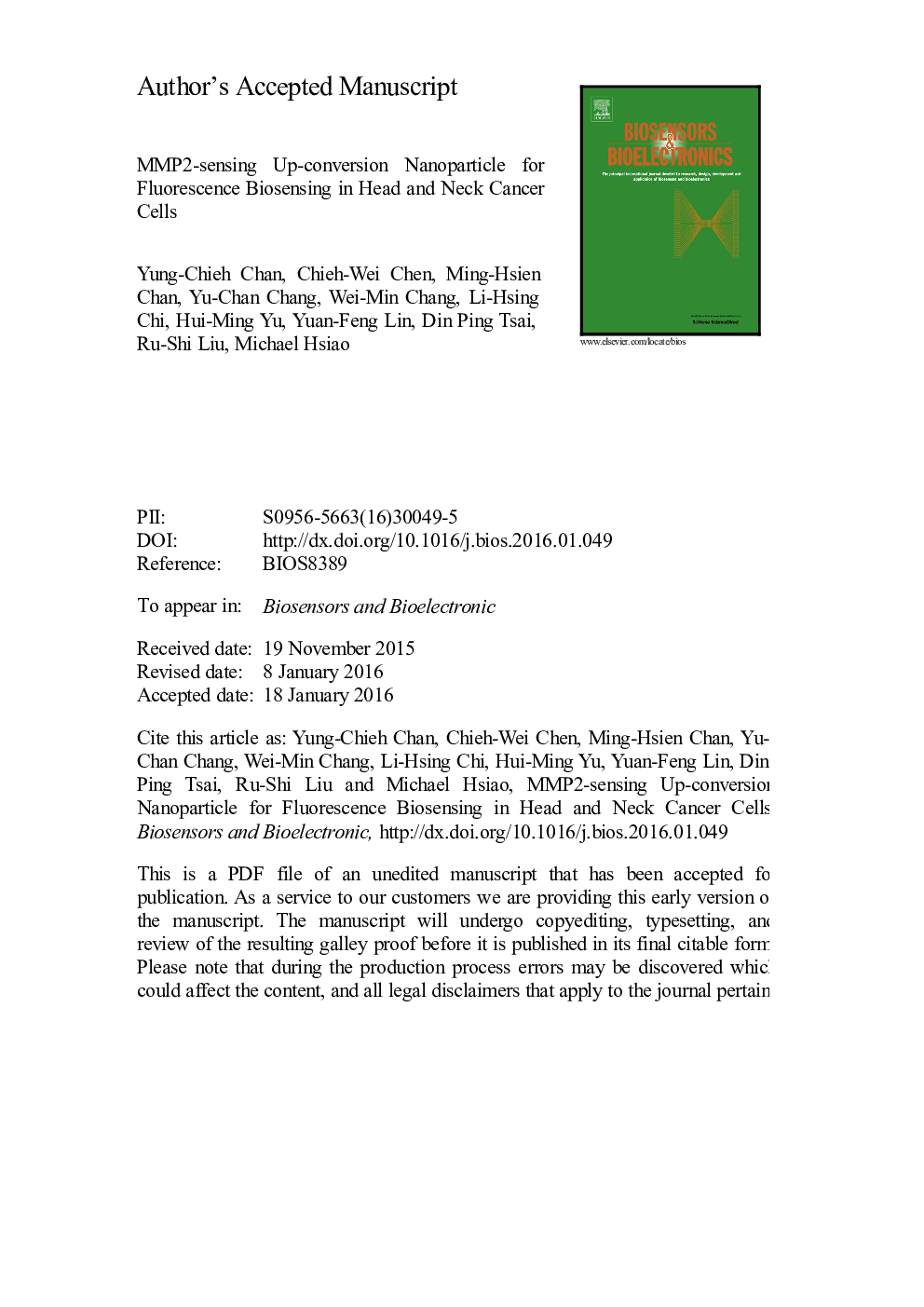| Article ID | Journal | Published Year | Pages | File Type |
|---|---|---|---|---|
| 7230671 | Biosensors and Bioelectronics | 2016 | 27 Pages |
Abstract
Upconversion nanoparticles (UCNPs) have extensive biological-applications because of their bio-compatibility, tunable optical properties and their ability to be excited by infrared radiation. Matrix metalloproteinases (MMPs) play important roles in extracellular matrix remodelling; they are usually found to significantly increase during cancer progression, and these increases may lead to poor patient survival. In this study, we produced a biosensor that can be recognized by MMP2 and then be unravelled by the attached quencher to emit visible light. We used 3.5-nm gold nanoparticles as a quencher that absorbed emission from UCNPs at a wavelength of 540Â nm. The biosensor consists of an upconversion nanoparticle, MMP2-recognized polypeptides and quenchers. Here, UCNPs consisting of NaYF4:Yb3+/Er3+ were prepared via a high temperature co-precipitation method while protecting the oleic acid ligand. To improve the biocompatibility and modify the UCNPs with a polypeptide, they were coated with a silica shell and further conjugated with MMP-recognizing polypeptides. The polypeptide has two ends of featuring carboxylic and thiol groups that react with UCNPs and AuNPs, and the resulting nanoparticles were referred to as UCNP@p-Au. According to the in vitro cell viability analysis, UCNP@p-Au exhibited little toxicity and biocompatibility in head and neck cancer cells. Cellular uptake studies showed that the MMP-based biosensor was activated by 980-nm irradiation to emit green light. This MMP-based biosensor may serve as sensitive and specific molecular fluorescent probe in biological-applications.
Keywords
Related Topics
Physical Sciences and Engineering
Chemistry
Analytical Chemistry
Authors
Yung-Chieh Chan, Chieh-Wei Chen, Ming-Hsien Chan, Yu-Chan Chang, Wei-Min Chang, Li-Hsing Chi, Hui-Ming Yu, Yuan-Feng Lin, Din Ping Tsai, Ru-Shi Liu, Michael Hsiao,
